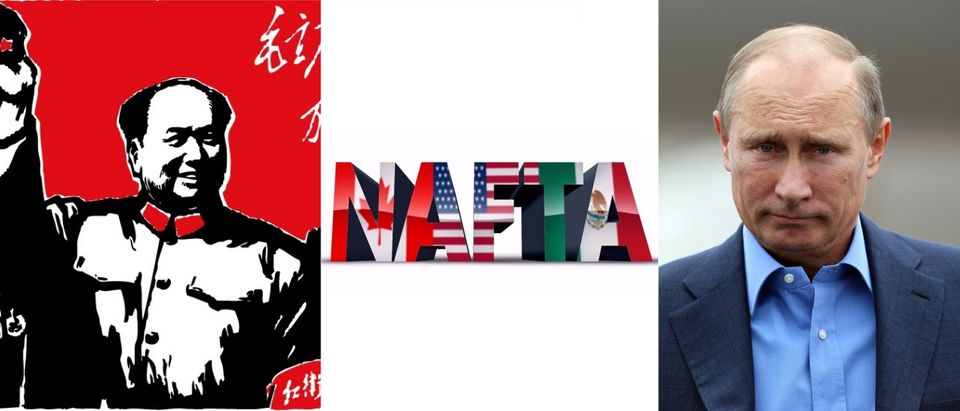NAFTA talks resumed again on May 7, and U.S. negotiators have much to think about. But while individual product regulations may be top of mind for the U.S. Trade Representative Robert Lighthizer, a particularly pressing issue, energy trade under NAFTA’s role in protecting U.S. borders and businesses, should see its share of discussion.
The North American Free Trade Agreement reaches almost every sector of the U.S. economy, but the energy trade in particular has benefitted under the agreement. North America accounts for 19 percent of crude oil, 28 percent of natural gas and 12 percent of global coal output, sending these products all around the world. Energy trade between NAFTA countries themselves is significant, with the U.S, Canada and Mexico trading millions of barrels of crude oil across their borders on a daily basis. If Canada alone is allowed continued uninhibited access to U.S. goods, service, and materials related to the energy industry, it is estimated that that trade will generate $45.6 billion in U.S. gross domestic product over the next 10 years. North American energy dominance should be a common goal of all three countries
Energy trade under NAFTA has also created jobs at home. As of 2017, 10.3 million U.S. jobs rely on energy trade with Mexico and Canada. These jobs span manufacturing goods like plastics, petrochemicals and fertilizers, as well as the U.S. refining sector, which processes crude oil from Mexico and Canada and supports 107,800 U.S. refining jobs directly.
While energy trade under NAFTA has proved to be an economic engine, it also plays a pivotal role in national security. Trade agreements are an inherent part of strengthening foreign relations with America’s allies. A new NAFTA 2.0 will help secure Mexico’s energy markets — open to the world for the first time in 70 years — for U.S. business. Not only can this relationship increase U.S. oil and gas (especially gas) exports to Mexico, bolstering manufacturing and refinery jobs at home, it can increase the U.S.’s share of Mexico’s market, keeping adversaries like Russia and China from gaining a foothold in the Mexican energy sector. How U.S. officials address NAFTA will have tremendous implications for the energy sector, and but the national security implications go beyond the production and sale of oil and gas products.
NAFTA protects our nation as a whole, and the Investor-State Dispute Settlement (ISDS) provision in NAFTA protects U.S. companies doing business across our borders. ISDS protections in NAFTA provide neutral panels to solve trade and investment disputes between companies and governments. Without them, U.S. investments in Mexico and Canada could be unlawfully seized by those foreign governments. This is particularly important to the oil and gas sector, where since 1996 there have been 64 cases of oil and gas expropriation around the world covered by ISDS protections. Since NAFTA’s inception, the U.S. has not lost a single ISDS case.
Investor-State Dispute Settlement protections, which USTR Lighthizer believes are subsidies to businesses, are absolutely critical to U.S. trade with Canada and Mexico and must be included in a revised NAFTA. The legal certainty that U.S. businesses enjoy under the ISDS mechanism should not be taken for granted. Lighthizer’s resistance to ISDS’ inclusion in a new NAFTA is nonsensical – these provisions are fully aligned with the Trump Administration’s goal of putting U.S. interests first. He would be wise to prioritize the rule of law, as the U.S. has championed it around the world for decades.
NAFTA protects our economy, enhances regional security and provides an opportunity to modernize the Energy Chapter in particular so that North American energy dominance becomes a short-term reality.
Ambassador Richard Kauzlarich is co-director of the Center for Energy Science and Policy and an adjunct professor for geopolitics of energy security at the Schar School of Policy and Government, George Mason University.
The views and opinions expressed in this commentary are those of the author and do not reflect the official position of The Daily Caller.


